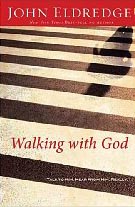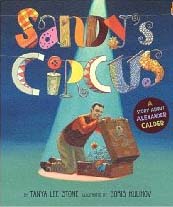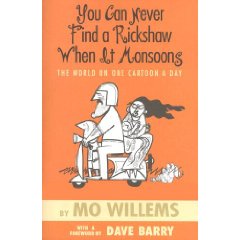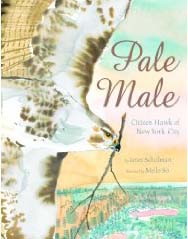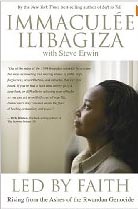 Led By Faith
Led By Faith
Rising from the Ashes of the Rwandan Genocide
by Immaculee Ilibagiza
with Steve Erwin
Hay House, Carlsbad, California, 2008. 205 pages.
Starred Review
Sonderbooks Stand-out 2010: #2 Nonfiction: True Stories
Led By Faith continues the story Immaculee Ilibagiza began in Left To Tell, telling what happened after her amazing escape from the Rwandan Holocaust. That story is an astonishing one of survival and of how God spared her life, protected her, and helped her to forgive the evil men who killed her family and so many others.
Led By Faith tells of Immaculee’s less glamorous struggles, trying to follow God’s leading in the aftermath of the horror. She deals with more prosaic concerns like sexual harrassment, fighting false accusations, breaking up with her boyfriend, paying for a wedding, and finding a job in America. In many ways, these struggles were much easier for me to relate to, but she still deals with them with amazing faith and forgiveness.
The timing of my reading this was excellent, coming just when I needed it. Last night, I got a chance glimpse on Facebook of a young woman whom I knew had had a long-standing affair with a married man, and encouraged him to leave his wife and kids. Then shortly afterward I saw on a friend’s profile the profile picture of a man I’d been acquainted with — who was posing with a smiling young woman — presumably the woman he abandoned his wife and kids for.
That got me reflecting on how much, how very much, pain and suffering is caused to people and to innocent children by adultery — and yet our culture treats it as if it’s all a lovely step of growth, something to be proud of. Such men proudly appear in public with their new “love,” pretending they haven’t made fools of themselves and deeply wounded the very people they promised to love and cherish.
I have many friends now who have been betrayed by their husbands. Some are happily married now to someone else, some are happily married to their original husbands, some are living a happy single life, and some are still in the midst of the pain and suffering. But all suffered horribly, all have been through incredible and unbelievable pain. All would agree with me that there is a reason that God calls adultery evil, plain and simple.
But I like Immaculee’s approach to people around her doing evil. Here is what she thought when two men with power tricked her and trapped her in a hotel room with plans to rape her:
“I was no longer afraid of Mr. E, and I was no longer afraid of Kingston. I felt sorry for these men, who only looked for material gain or physical gratification, never caring whom they hurt to satisfy their wants. Looking at Mr. E, I now saw him for what he was: a weak and pleading man with a dirty mind standing by the edge of a hotel bed. All he saw when he looked at me was an orphan he could mistreat without fear of getting caught or facing the consequences. It was all too familiar, and God had helped me through far worse situations with men far more vicious and depraved than Mr. E.
“What good did he think his power would do him when he faced God? How could he think his money would protect him when all he had could be snatched away from him in an instant?
“I wanted to tell him about meeting Mupundu, who’d been a big politician in the Hutu government and the richest woman in Mataba . . . until she gave in to the bloodlust of the genocide. I saw her limping back to our village from Zaire, and she’d lost everything — her money, her power, her family. She didn’t even have shoes to cover her bleeding feet. She’d turned from God, and she’d lost the only real thing she could count on, just as surely as Mr. E would lose everything unless he turned his heart away from wickedness and back to the Lord.”
Don’t Immaculee’s words apply equally well to any sinner? She is consistent in reminding the reader what a horrible place those who do evil have gotten themselves into. We can forgive them, because God is more than capable of taking care of their punishment, and their own consciences will punish them cruelly. If we refuse to forgive, then we only bring ourselves into that hell with them. Why should we give them so much power, when turning to God, Who gives the power to love and forgive, can bring such healing?
I’ve noticed with my friends who have been betrayed that the betrayers consistently aren’t able to face the guilt and shame of what they’ve done — so they consistently blame their wives for their actions. They don’t want forgiveness, which would imply they had done something wrong. They want to be excused. They want to go along with our culture’s lines like “They were too different,” or, “She didn’t meet my needs.” In the case of the Rwandan genocide, the government was all too eager to portray the Tutsis as insects who needed to be exterminated. But, inevitably, the guilt came later.
Immaculee’s perspective, to first feel sorry for the perpetrators, is so valid. That young woman can smile in the profile picture — but how in the world can she possibly have a healthy relationship with someone who is already established as a liar and a cheater? And why is it, with the broken marriages I know about, that the one who cheated is the one eaten up and consumed by hatred, bitterness and lack of forgiveness? Where is all that happiness they said they were going to find by leaving their wives?
Okay, I’m going on and on about what was on my mind when I was reading the book, and not about the book itself. But it’s that kind of book — a beautiful model of love and forgiveness and guidance and walking by faith. It tells you that sinners are to be pitied, and evil can be overcome by good. The principles can apply to almost anyone.
If you have ever been wronged, if you have ever noticed evil in the world around you, if you have ever worried about what to do next or how you would get by, then you can learn from and be inspired by Immaculee’s story.
I wish her all the blessings in the world. And I love her message that love and forgiveness can overcome hatred and evil.
In the Epilogue, she goes back to Rwanda for her brother’s wedding and finds a country that is healing. This is the beautiful ending to the book:
“Cousin Ganza had told me that people were healing in Rwanda, that faith was being restored. God, he said, was working a miracle of forgiveness in our country. Gazing out over the glowing city below me, I knew that this miracle would inspire the entire world. If the evil that was unleashed here could be conquered with love, where could evil not be conquered? If the hearts of Rwanda could be healed through forgiveness, then what heart couldn’t?
“The sun slipped beyond the horizon, its last rays illuminating the tops of a thousand hills. It was enough light for the entire world to see Rwanda rising from the ashes of genocide.”
Buy from Amazon.com
Find this review on Sonderbooks at: www.sonderbooks.com/Nonfiction/led_by_faith.html
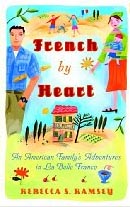 French by Heart
French by Heart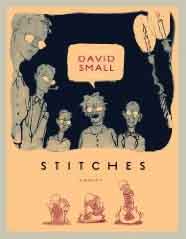 Stitches
Stitches Led By Faith
Led By Faith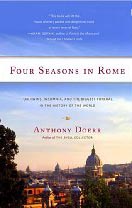 Four Seasons in Rome
Four Seasons in Rome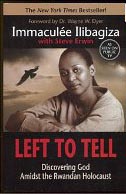 Left to Tell
Left to Tell
